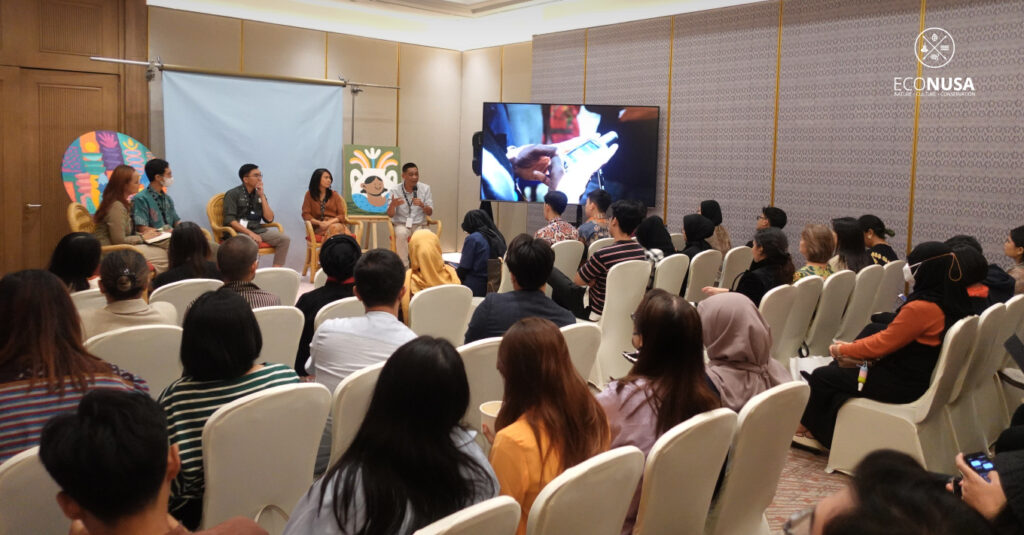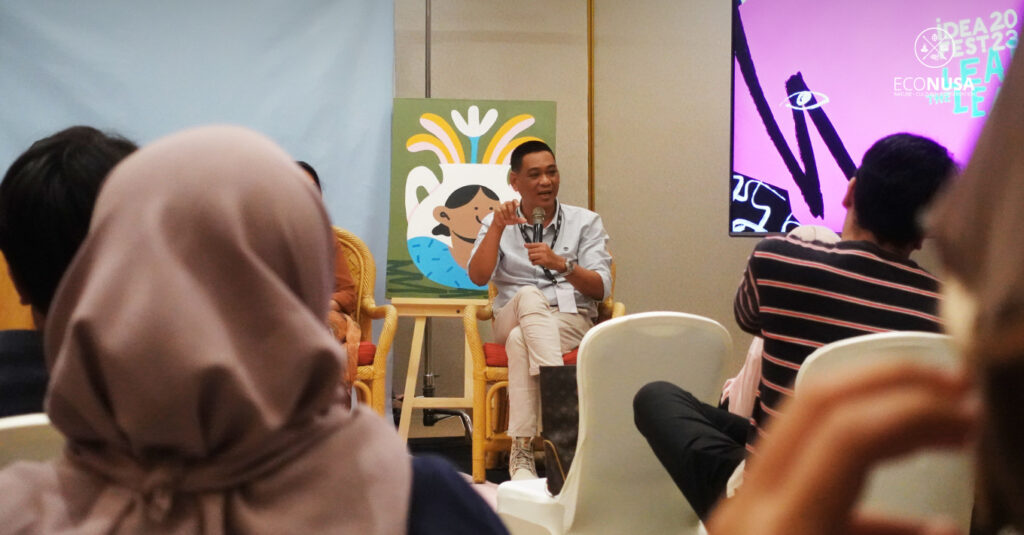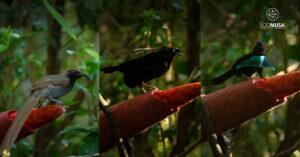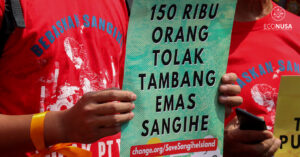
“Nature serves as a ‘mother’ who provides us all sources of life and must be protected,” is a fundamental life value owned and upheld by indigenous and local communities in the Land of Papua and Maluku Islands. The existence of fundamental thoughts that are still believed and practiced by the people in Papua and Maluku Islands show that culture has always had a big role in efforts to protect nature and all biodiversity in it.
The Land of Papua and the Maluku Islands are known for its rich land, not only in biodiversity but also in culture. Data from the Papua Provincial Government shows that there are at least 255 indigenous tribes in the Land of Papua, and reported by Kompas.com there are 30 tribes that inhabit the Maluku Islands. The indigenous and local communities have long lived side by side with nature and apply traditions and local wisdom that have been passed down to generations until today. These important thoughts and values from Eastern Indonesia were conveyed at IDEAFEST 2023 through a discussion themed “Sow and Grow: Grassroots Solutions for a Greener Tomorrow” on September 29, 2023.
Read also: Positive Stories and Initiatives from Tanah Papua Shine at New York Climate Week 2023
The discussion presented Bustar Maitar, CEO EcoNusa Foundation, Dipa Satrialelana from Sekolah Tani Muda, General Manager of Hutan Itu Indonesia Christian Natalie, and the Advisor of Junglo Irma Sitompul as speakers. All speakers shared inspiring stories and initiatives on solutions to create a better and sustainable future for the earth.
“When we talk about protecting nature, especially in the Land of Papua and Maluku Islands, it means that those who are at the forefront are the indigenous communities themselves,” Bustar told the participants. He explained that communities who live in urban areas and far from forests and seas also benefit from the existence of healthy forests and seas that maintain a stable climate, providing living sources such as freshwater, clean air, and food sources. He emphasized the importance of supporting indigenous communities who served literally as nature safeguards.

Bustar further explained that some of the forests in Eastern Indonesia, especially in Papua and Maluku Islands are threatened by the expansion of concession land, which often causes harm to indigenous and local communities. “EcoNusa together with the Regional Government evaluated the oil palm plantation licensing which resulted in the revocation of concession rights covering an area two and a half times the city of Los Angeles. The next step is to support indigenous peoples in mapping their customary territories so that they can regain their rights to manage their customary lands sustainably. Indigenous peoples are also empowered and given capacity so that they can manage their customary territories, both forests and coastal areas, so that they can get economic benefits from there,” he said.
Christian Natalie revealed data from a survey conducted by Hutan Itu Indonesia on 50,000 respondents under the age of 35, showing that eight out of ten people think that Indonesia’s forests are a cause for concern. However, most of them do not realize that forest degradation is caused by human activities. “This shows that there are still many people who feel they have no connectivity with nature, especially forests. In fact, human life, both people who live side by side with nature but also those who live in urban areas, are very dependent on nature, both forests and the sea,” Tian said.
Read also: A Travel Note: The Ireres Tribe Unites to Protect Indigenous Territories
In line with Christian, Irma Sitompul shared the possibility of conserving “own-forest” despite living far from the forest. “We can create a forest in our yard using the miyawaki method, a Japanese method to restore the lost forests and life to improve existing climate conditions. At least we can provide a clean air supply from our own yard,” said Irma.
Dipa Satrialelana, who has an interest in agriculture, chose to take a role in fighting the climate crisis with agroecology, an agricultural method that considers the ecosystem chain and the character of each biota in the garden. “When we already know the nature of each living creature, we will know what plants can be planted in the garden, maximize yields, and reduce or even completely eliminate the need to use chemical fertilizers or anti-pests. The food we consume will be healthier, and definitely environmentally friendly,” Dipa explained.
The various stories, ideas, and perspectives on solutions towards a sustainable future provided by each speaker received very positive responses from the participants. One of the participants, Farid, felt he gained knowledge, especially on the natural potentials of Papua and the Maluku Islands. “I learned that the ‘last natural stronghold’ to fight climate change is in eastern Indonesia. With all the biodiversity that we have there, many economical practices can be done without damaging the ecosystem, also by applying existing local wisdoms,” said Farid.
Read also: Egek Festival: A Traditional Way of Moi Tribe in Preserving its Heritage and Nature
The negative impacts of the climate crisis are increasingly being felt, ranging from rising earth temperatures, extreme weather, rising sea levels, to lack of clean water and food crises due to crop failure. The climate crisis is a big homework that we must solve together to ensure a better and sustainable future of life.
According to Bustar, to create the change we have to jump in and play a direct role in the effort to make it happen. Therefore, when talking about protecting nature, it is important to work with indigenous peoples and local communities at the forefront, while embracing the culture, local wisdom, and knowledge which are the values of lives that coexist with nature. “We must be part of the changes we want to encourage. There is no such thing as a remote control change. So let’s together with all the strengths and abilities we have, work together, hand in hand to protect nature and save our lives,” Bustar concluded.
Editor: Swinny Adestika







